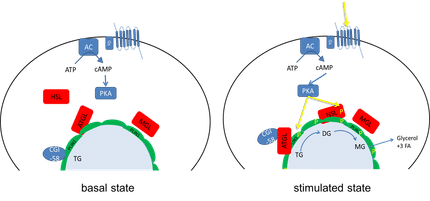Identifying molecular targets for diabetes-related ED
Advertisement
erectile dysfunction is one of the most prevalent diabetes-induced complications in men; current estimates suggest that as many as 75% of men with diabetes will develop some degree of ED, and in many cases diabetics develop more severe forms of ED that are less responsive to standard drugs.
Now, in a study appearing in the March Molecular and Cellular Proteomics , researchers at Case Western Reserve University and Albert Einstein College of Medicine have identified some of the molecular changes that accompany the onset of diabetes-induced ED, which may lead to markers that will help identify ED risk as well as new potential drug targets.
Mark Chance and colleagues used a proteomics approach to examine the relative abundance of proteins in the corpora (the expandable tissues along the length of the penis which fill with blood during erection) of diabetic rats at two different stages of progression: one week and two months after the onset of diabetes. By comparing these rats to healthy age-matched controls, they identified 57 proteins in the penile tissue that either increased or decreased during diabetes.
The candidate proteins revealed insights into the mechanics of ED; perhaps not surprisingly, collagen proteins that provide strength and stiffness were down-regulated in diabetes, as were proteins that transport sex hormones. Meanwhile, proteins involved in cell death (apoptosis) were up-regulated, as were many proteins related to fat metabolism, changes that might be related to narrowing or hardening of blood vessels.
Chance and colleagues note that the rat model they used in the study mimics many relevant features of human ED, and thus the identification of these 57 candidate proteins could open up further and more detailed studies into the relationship between diabetes and ED in humans, and also lead to diagnostic and drug targets.
Topics
Organizations
Other news from the department science

Get the life science industry in your inbox
By submitting this form you agree that LUMITOS AG will send you the newsletter(s) selected above by email. Your data will not be passed on to third parties. Your data will be stored and processed in accordance with our data protection regulations. LUMITOS may contact you by email for the purpose of advertising or market and opinion surveys. You can revoke your consent at any time without giving reasons to LUMITOS AG, Ernst-Augustin-Str. 2, 12489 Berlin, Germany or by e-mail at revoke@lumitos.com with effect for the future. In addition, each email contains a link to unsubscribe from the corresponding newsletter.


























































